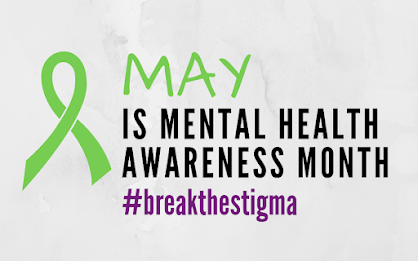MENTAL HEALTH AWARENESS MONTH No.4 5.22.23
PSYCHOSIS
- It is a severe psychological condition and syndrome marked by impaired perception of reality. It primarily involves delusional thoughts & beliefs and visual & auditory hallucinations. A person experiencing this condition may have distorted thoughts and emotions that makes them lose touch with their reality. Primarily a symptom of mental illness, like bipolar disorder and schizophrenia, onset can also occur due to conditions that affect the brain (migraine, epilepsy, or Parkinson’s disease), neurocognitive conditions (dementia), excessive stress, trauma 1, sleep deprivation, physical illness, substance use or medications. The sufferer may exhibit disturbed & disorganized thinking, abnormal speech, unusual behavior, and false sensory impressions. They may be unaware of their condition and may have trouble differentiating fantasy from reality. According to a report, the median lifetime prevalence of this condition is about 7.49 per 1000.
- According to a 2015 study 2 it is “not a nosological entity” but a syndrome. The researchers explain that “Psychosis is a clinical syndrome composed of several symptoms. Delusions, hallucinations, and thought disorder may be regarded as core clinical features.” Also known as a psychotic episode or psychotic experience, it can affect each person differently depending on the cause of onset. Some people may experience only one episode while others may have multiple episodes during their lifetime. An episode can drastically affect an individual’s perception of what is real and what is imagination. It impairs how the brain processes new and existing information leading to hallucinations and delusions. They may have false beliefs, such as believing that someone is trying to harm them, or hear, see or sense things that are not real or non-existent. Such experiences can be terrifying for the sufferer which can lead to distrust of loved ones, self-harm and even suicidal ideation. This is why it is crucial to seek medical attention. Effective treatment along with support from family and community can enable the person to live a healthier, more satisfying life.
QUICK FACTS
- While psychosis can be a symptom of psychotic disorders, it may also be caused by sleep deprivation, stress, certain prescription medications and substance use
- People often show early warning signs before developing psychosis, including paranoia, social withdrawal, trouble concentrating or thinking clearly and difficulty communicating
- Women are at a higher risk of psychosis after giving birth, with around 2 out of 1000 births resulting in postpartum psychosis
- Ethnic minorities tend to have a higher risk of developing psychosis, although the cause for this higher risk is not known
- In most cases, psychosis occurs during adolescence or in early adulthood. The average age of psychosis onset is 24.

.png)

Comments
Post a Comment